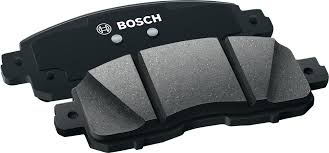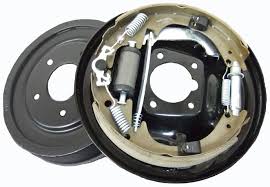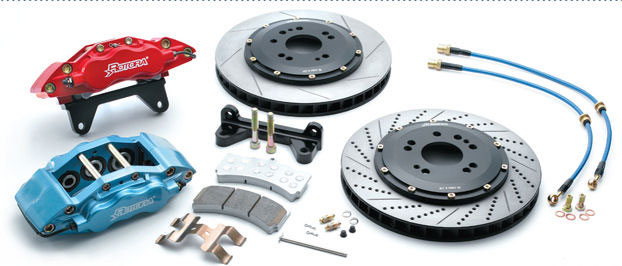Causes of Squeaky Brakes and How to Avoid Expensive Repairs
The brake system of any vehicle is an essential safety system and it’s scary when you hear squeaky noises. However, some sounds are usual since they come as a result of driving conditions like dusty trails, sandy roads, sudden braking and also humidity. Breaks are indispensable components for a vehicle. Do not ignore when you hear such noise for safety purposes.
Worn out Brake Pads
 The pads make a squeaking noise when they become extremely thin after a period of time. They are assembled by attaching metal tabs and pushing on clips to the pad’s backing.
The pads make a squeaking noise when they become extremely thin after a period of time. They are assembled by attaching metal tabs and pushing on clips to the pad’s backing.
The metal-on-metal sound is created when the pads get worn out since they hit the rotor. To stop this annoying noise, you will need to change the pads
Stuck Brake Calipers
The brake cannot be fully applied if the calipers get stuck, causing the pad not to break its contact with the rotor.This produces excessive heat and friction which forms crystallization on both the pads and rotors. This causes less friction than necessary since the surface is hardened, robbing the braking power and creating squeaky sounds. To solve the issue, you will need to replace the rotors and pads.
Rusty Rotor
Brake rotors that have gotten rusty will lead to squeaking brakes. Moisture, condensation, and dew gather when the car is parked, creating a rusty layer on the rotor’s surface. When you drive around, the pads scrape that rust off the rotors and get stuck onto them. With time, the rust particles get embedded, causing squeaky brakes. To avoid this from happening, keep your car under controlled climate garage.
Worn out Insulation Shims
Brake pads contain insulation shims against their steel backing which separate the caliper and the pad from producing annoying sounds. However, with time they get used up and can’t do their work so silicone gel or shims replacement will reduce the noises.
Dry Brake Drum
 When the backing plate and shoe come in contact, a squeaking sound will be hard if they are dry. If these spots don’t get lubricated, rust forms on the metal parts.
When the backing plate and shoe come in contact, a squeaking sound will be hard if they are dry. If these spots don’t get lubricated, rust forms on the metal parts.
The shoes will scrape against the plate when you push the brakes, resulting to rhythmic squeaking sound. Lubricating the contact points is the solution, and you will be required to replace if the parts are worn out.
Clips
They keep pads secure and do not allow them to create the vibration when the brakes are applied. When they are used up or broken, the brakes create squealing noises as a result of excessive pad vibration. Replacement is the solution to such cases.…

